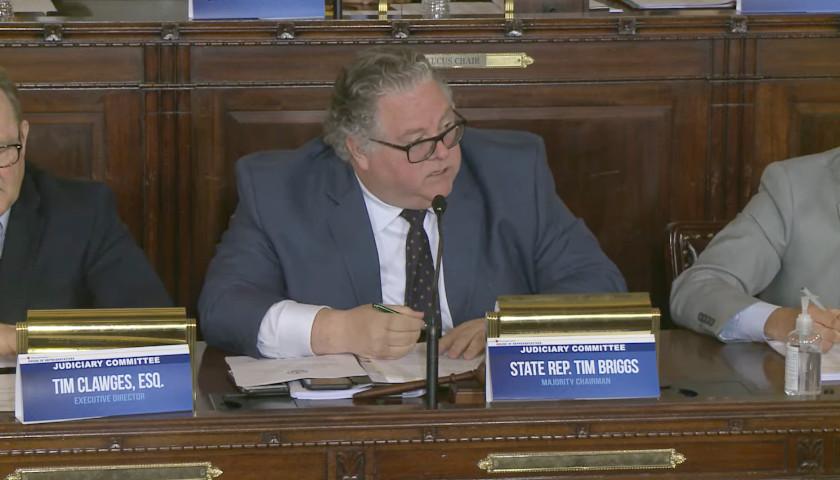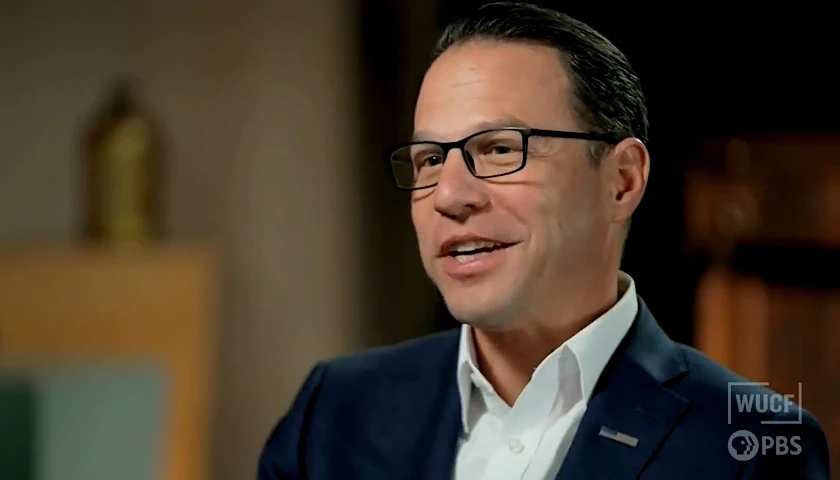Pennsylvania lawmakers on Tuesday took a corrective step in their effort to change state law to give adults who suffered sexual abuse as children more time to sue.
Current state policy gives underage victims of molestation or sexual assault a 12-year period to litigate against their perpetrators or those perpetrators’ institutions. State House and State Senate versions of a measure to give the would-be plaintiffs a new two-year window to file claims passed the House Judiciary Committee in early March, but the panel took them up again this week. Some lawmakers insisted House rules called for a public hearing on the legislation, which the committee conducted two weeks ago, to precede voting.
“Though I believe we were following the rules, the thoughts of the minority [Republican] party really hit home that it should be more than just following the intent of the rules,” committee Chairman Tim Briggs (D-King of Prussia) said on Tuesday. “We should be doing everything we could to make sure that the process is correct.”
House Bill 1, authored by State Representative Mark Rozzi (D-Temple), and Senate Bill 1, sponsored by State Senator Dan Laughlin (R-Erie), passed committee 14 to 7. The Senate version initially contained two other constitutional amendments, one requiring voters to show identification at the polls and the other allowing the legislature to review executive branch regulations. When that bill reached the House Judiciary Committee, Democrats voted unanimously to strike the ID and regulation components.
HB 1 passed the full House of Representatives in a special session earlier this year. Because that measure and its Senate counterpart would amend the state Constitution, one of the bills would need to pass both chambers in two consecutive sessions. If that happens, the measure will appear on the election ballot for voters to approve or reject. That could happen as soon as this November.
Some lawmakers question the merits of the legislation which deprives governmental institutions of sovereign-immunity protection. The critics point out that when litigants want to punish school districts for failure many years ago to stop abusive teachers, taxpayers will bear the ultimate cost. A January analysis by the Susquehanna Valley Center for Public Policy anticipated that the amendment would result in damages totaling between $5 billion and $32.5 billion statewide.
That report noted that the Keystone State experienced an unusually high incidence of sex abuse.
“In recent years, Pennsylvania stands near the top of the list in terms of the number of cases,” the document stated.
The Catholic Church has been scrutinized for employing many clergies who molested or raped youths. Rozzi himself was raped by a Catholic priest at age 13.
Yet the Susquehanna Valley Center observed that the U.S. Department of Education has surmised that sex abuse in public schools has occurred 100 times as rampantly as in Catholic schools. If that speculation is accurate, 100,000 claims could result from temporarily extending the commonwealth’s statute of limitations.
Another bill legislators have considered, House Bill 2, would create the two-year window statutorily. This version could thus get enacted with just one vote by both chambers and approval by Governor Josh Shapiro (D). This bill, also sponsored by Rozzi, passed the House but has not received consideration in the Senate.
The simple-statute approach has been even more controversial than the constitutional one because some legal experts fear it would violate the Pennsylvania Constitution’s Remedies Clause. That provision, found in Article I Section 11, guarantees wronged citizens may seek “remedy by due course of law, and right and justice administered without sale, denial or delay.” Such litigation against the commonwealth can proceed “in such manner, in such courts and in such cases as the Legislature may by law direct.”
HB 2 opponents argue that the Remedies Clause disallows the protection of a statute of limitations to be denied without changing the state Constitution.
– – –
Bradley Vasoli is managing editor of The Pennsylvania Daily Star. Follow Brad on Twitter at @BVasoli. Email tips to [email protected].





